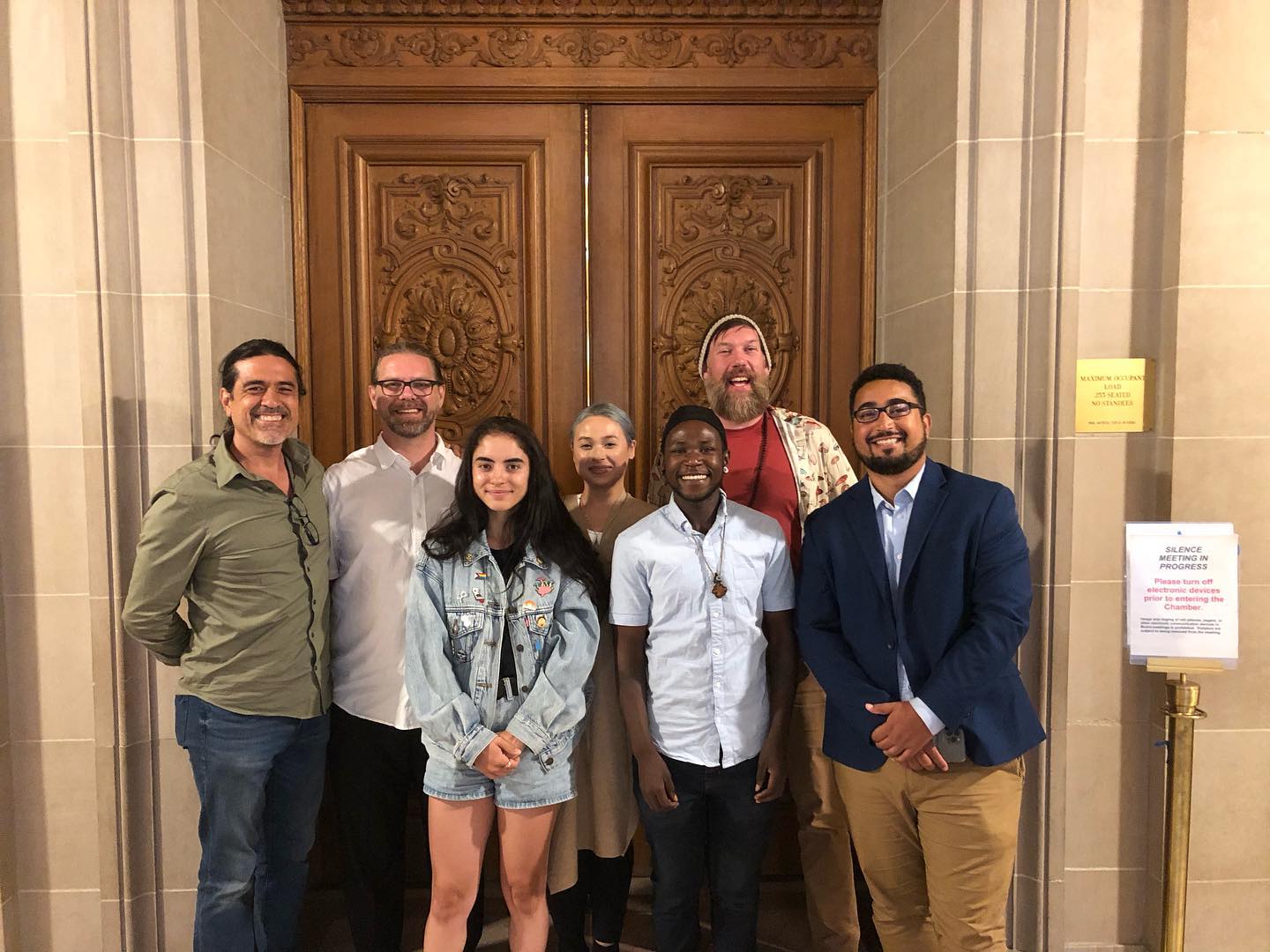On September 6, the San Francisco Board of Supervisors voted unanimously to decriminalize a group of naturally occurring psychedelics, or “entheogens.” The resolution instructs police to avoid making arrests or charges over these substances.
According to the resolution, any “Entheogenic Plants or plant compounds on the federal Schedule 1 list shall be amongst the lowest law enforcement priority for the City,” and the Board “urges that City resources not be used for any investigation, detention, arrest, or prosecution arising out of alleged violations of state and federal law” relating to these substances. The sweeping language includes “planting, cultivating, purchasing, transporting, distributing, engaging in practices with” this substances, as well as simple possession.
The decriminalization campaign was led by advocacy group Decriminalize Nature San Francisco. Supervisor Dean Preston (District 5) introduced the measure to the Board and Hillary Ronen (District 9) cosponsored it. While the resolution doesn’t specify particular substances, Decriminalize Nature informed Filter that it will apply to psilocybin, DMT, ibogaine and mescaline.
“I am proud to work with Decrim Nature to put San Francisco on record in support of the decriminalization of psychedelics and entheogens,” said Supervisor Preston in a press release. “San Francisco joins a growing list of cities and countries that are taking a fresh look at these plant-based medicines, following science and data, and destigmatizing their use and cultivation. Today’s unanimous vote is an exciting step forward.”
“I think individual stories really rose to the top and gave a voice to the movement.”
San Francisco is not legalizing psychedelics for commercial sale, as the state did with cannabis. Instead it will simply allow people to use and share these substances in private settings without being arrested. The resolution also doesn’t apply to all psychedelics—LSD and MDMA, both Schedule I drugs, are excluded.
Decriminalize Nature credits the unanimous vote to weeks of work from local volunteers to lobby the Board of Supervisors. “[We encouraged] our constituents send them personal messages of how these medicines have changed their lives and healed them,” Jen Christian, a clinical psychologist with Decriminalize Nature San Francisco, told Filter. “I think individual stories really rose to the top and gave a voice to the movement.”
The success of this measure comes just weeks after a major setback for psychedelic reform in California. Senate Bill 519 would have decriminalized a variety of psychedelic substances statewide. The bill passed the Senate, but after it went to the Assembly, lawmakers gutted it, taking out the decriminalization provisions and leaving a meaningless shell. The bill’s sponsor, state Senator Scott Wiener (D), responded by pulling the bill entirely, vowing to try it again next year.
Christian predicted that the direct criminal justice impact of ending arrests for psychedelics would be minor, as there are relatively few such arrests to begin with. In a notable contrast, San Francisco is currently engaging in a police crackdown on other drug use, led by Mayor London Breed and the city’s new district attorney, Brooke Jenkins.
San Francisco has become the biggest US city to take this action.
But the bigger impact of the resolution, Christian believes, will be on de-stigmatizing psychedelic use for a wider group of people interested in exploring these substances. The resolution itself will offer some limited protection to people who provide support services as a facilitator, healer or guide to others using psychedelics.
“Decriminalization starts the conversation around how to add protections for providers because there is an absence of a public directory or referral so individuals can find safe experiences and ethical practitioners,” Christian said. “A lot of us have friends in the underground and we know about these things going on, but because we’re afraid of our licenses being taken away we’re kind of in unknown territory.”
San Francisco now joins a small but growing number of cities nationwide that have decriminalized psychedelics in some form. They include Oakland and Santa Cruz in California, and also Seattle, Detroit, Denver and Washington, DC—plus several smaller cities and towns. But with a population of over 815,000, San Francisco has become the biggest US city to take this action.
Image of activists for Decriminalize Nature San Francisco testifying to Board of Supervisors used via Facebook.




